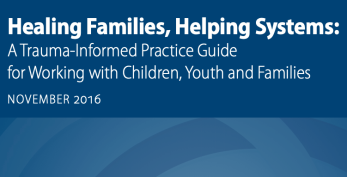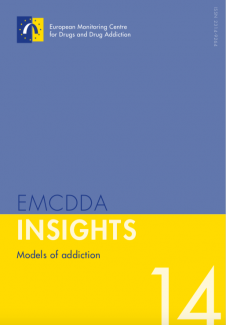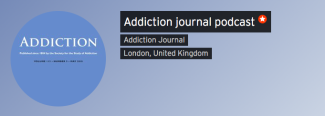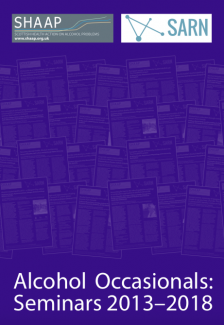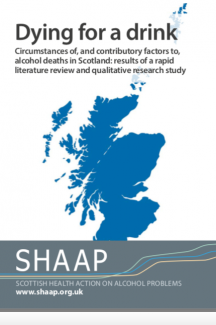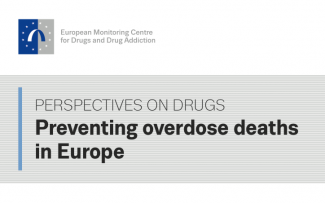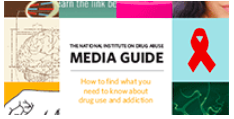
Search
Models of Addiction
The science of addiction is complicated, and it continues to be a field where the debate over definitions, models, theories, and the most appropriate ways to respond continues.
EMCDDA's Insight Review provides a critical analysis of the...
Why Do Those With Long-Term Substance Use Disorders Stop Abusing Substances?
Many people successfully recover from substance use disorders. Understanding the factors that contribute towards people deciding to stop using substances can help guide treatment and design interventions.
A recent study has explored the...
Relapse: The Role of Self-Regulation and Feelings of Disconnection
Highlights
- The study examines the views of patients with alcohol use disorder on relapse.
- Relapse was associated with the use of alcohol as a means of self-regulation combined with the sense of being disconnected from other people.
Th...
Addiction Journal Podcast - December 2018
The Journal of Addiction has published its latest podcast describing the highlights from the December issue of Addiction.
In addition to describing the key features that are presented in the journal, the podcast includes a selection of...
Alcohol Occasionals: Seminars 2013–2018
Almost a fifth more alcohol is sold per adult in Scotland than in England and Wales. It is believed 1 in 4 people drink at hazardous or harmful levels and in 2016 alone there were over 1,200 alcohol-related deaths in Scotland.
Scottish...
The Global Drug Survey for 2019
Self‐Medication with Alcohol or Drugs for Mood and Anxiety Disorders
Substance use is one way that people deal with the difficult symptoms present in mood and anxiety disorders. As people become more reliant on the effects of the substances to relieve distress the use can develop into dependence. Self‐medica...
Mindfulness for Chronic Pain and Prescription Opioid Misuse
Opioid medication for chronic pain can be an effective treatment. Most patients take the medication as prescribed, however some individuals can become addicted to the drug, leading to opioid misuse. Prescription opioid misuse is a...
Field Guide to Drug Demand Reduction Program Development, 3rd ed.
The Field Guide to Drug Demand Reduction (DDR) Program Development is an annual publication by the U.S. Department of State primarily for its Embassy personnel abroad to guide in the development of substance use prevention and treatment...
Dying for a Drink
Scottish Health Action on Alcohol Problems (SHAAP) has published its latest report, ‘Dying for a drink’.
Scottish people tend to consume more alcohol than people in England and Wales. Alcohol is a harmful substance and, consumed in excess...
Preventing Overdose Deaths in Europe
There were over 9000 fatal overdoses in Europe in 2016. Tackling this concerning issues remains a key priority for public health policy.
The European Monitoring Centre for Drugs and Drugs Addiction has published their latest perspective...
Mindfulness, Cravings and Alcohol Demand

Young adults between the ages of 18 and 24 who are in college are more likely, compared to their non-college peers, to drink to excess. College drinking remains a significant public health concern with consequences including poorer...
Risk Factors for Discontinuation of Treatment for Opioid Use Disorders
Opioid Use Disorder (OUD), and the associated risk of overdose and death, is becoming one of the most prevalent threats to health and social wellbeing in the United States. Medication, such as buprenorphine, is the gold standard treatment...
Report on the State of Public Health in Canada 2018: Preventing Problematic Substance Use in Youth
The Public Health Agency of Canada has released its latest report on the state of public health, with a spotlight on the prevention of problematic substance use among youth.
Results from the analysis found that almost 80% of Canadians aged...
Gene Therapy for Cocaine Addiction
Cocaine addiction is linked with uncontrollable drug seeking. Cues within the environment act as a constant reminder of the experience and can lead to relapse. Current medication options are limited when it comes to meeting the needs for...
Substance Use and Adolescent Cognitive Development
Both alcohol and cannabis misuse is linked with impaired mental functioning. Understanding the impact of substance use is particularly important when studying the developing brain.
A recent piece of research, published in the American...
2018 NDARC Annual Research Symposium - Presentations
A number of presentations from the 2018 NDARC Annual Research Symposium, which was held on Monday, 8 October 2018, have been made available.
The theme of the event was Clinical, community and policy responses to emerging problems in drug...
SPR 27th Annual Meeting - Call for Papers
SPR 27th ANNUAL MEETING
May 28 – May 31, 2019
Hyatt Regency San Francisco, San Francisco, CA
CALLS NOW AVAILABLE:
Papers, NIDA International Poster Session, Preconference Workshops, and "Brown Bag" SIGs
Submission Deadline for ALL...
College Drinking: Prevention Perspectives
A recent video produced by Substance Abuse and Mental Health Service Administration highlights the harmful consequences of underage and excessive alcohol consumption, and provides evidence-based strategies that can be used in a university...
Media Guide for Journalists
The National Institute on Drug Abuse (NIDA) has released a new guide for journalists in the field of drug abuse and treatment. The purpose of this guide is to provide journalists with fast and user-friendly access to the latest scientific...
Share the Knowledge: ISSUP members can post in the Knowledge Share – Sign in or become a member

